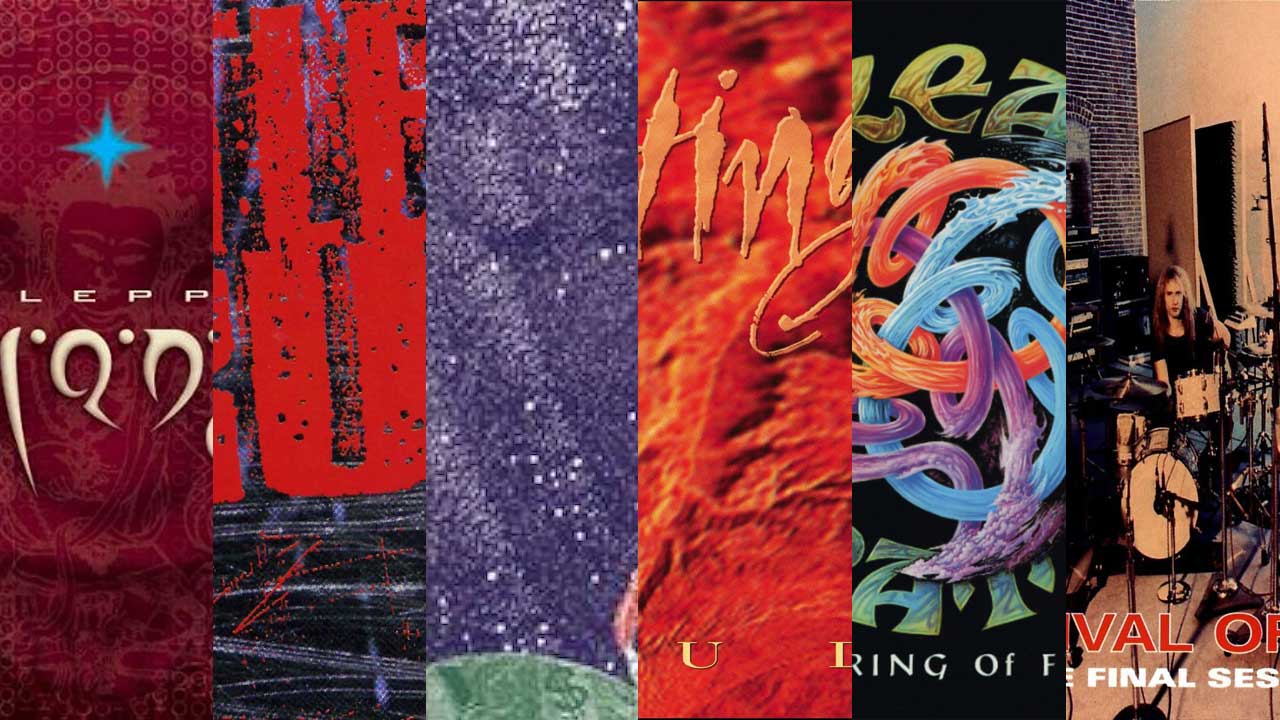Something changed when grunge hit. Almost overnight, the story goes, the star-spangled glamour of Sunset Strip was swept aside by a murkier sound from the Pacific North West. The party poopers arrived, and the party was well-and-truly pooped.
Glitter was out, gloom was in, and for some bands – perhaps those whose fortunes were already on the wane – it was time to adapt or die. Here are six bands who reluctantly boarded the grunge bandwagon, for better or worse.
But mainly for worse.

Def Leppard
Before: Globe-chomping superstars whose Pyromania and Hysteria albums turned them into the biggest thing to come out of Sheffield since stainless steel.
After: Ditched the tasselled denim, cut the perms and took a turn for the rawer on 1996’s Slang.
Did it work? The band still like it, the fans less so. But Leppard are currently on the road with Mötley Crüe on the revenue-slurping Stadium Tour, so you do the math.
Mötley Crüe
Before: The epitome of 80s rock: tattooed drug-monkeys whose hedonism was fuelled by the success of albums like Shout At The Devil and Girls, Girls, Girls.
After: Frontman Vince Neil departed in 1991. Cue new vocalist John Corabi and a ‘gritty’ new sound on 1994’s joyless self-titled album.
Did it work? No one was fooled, although the album has developed a cult following. Corabi was jettisoned, Neil rejoined and the band party, most recently on the road with Def Leppard on the revenue-slurping Stadium Tour (see above), so you do the math.
The Almighty
Before: Scots greasemonkeys with a nice line in biker barfriendly scuzz. Ricky Warwick claimed to have just four lyrical subjects: “hate, love, religion and sex”.
After: They cut their hair, invested in plaid shirts and sluiced away the grit for 1994’s Crank.
Did it work? Not really. But then they’d arguably already peaked a few years earlier. Warwick now spends most of his time with Thin Lizzy and Black Star Riders, but his old band are still a going concern – three celebratory show are lined up for late 2023 – so it wasn’t a complete disaster.
Winger
Before: Fronted by poodle-haired pin-up Kip Winger, you couldn’t switch on MTV without seeing them in the late 80s.
After: Caught in a pincer movement between grunge and Beavis & Butt-head, they deliberately heavied up on 1993’s Pull.
Did it work? Not remotely – they split in 1994. But then as Kip Winger admits: “We knew we were already dead.” Of course, the band have since risen from the grave, and a seventh studio album, the cleverly-titled Seven, was released in May 2023.
Mike Tramp
Before: Former boyband star who made his name with White Lion, hitting paydirt with 1987’s Pride.
After: White Lion were overwhelmed by grunge, and split in 1992. Tramp formed Freak Of Nature shortly afterwards, who released two gruff hard rock albums before the wheels fell off.
Did it work? 1994’s Gathering Of Freaks spent a sole week at No.66 in the UK chart, so no. In 2023, Mike Tramp signed to the label that everyone eventually signs to, Frontiers, and released Songs of White Lion, an album celebrating his pre-grunge glory days. It was almost as if Seattle had never existed.
Kiss
Before: 70s superstars in make-up, 80s hair metal heroes without, Kiss were a band who peppered their enormous business wisdom with occasionally catastrophic artistic thinking, so wavering fortunes and the arrival of grunge was always going to present a dilemma.
After: Kiss ditched the party anthems for a heavy, downbeat style similar to Soundgarden and Alice In Chains, recording the songs that were eventually released as Carnival Of Souls. It was a curious turnaround for a band that had been cited as a major influence by so many grunge stars.
Did it work? No. The album was reluctantly released when bootleg copies began to circulate, by which time the original line-up of Kiss had reunited, in full make-up. 26 years and two farewell tours later, Kiss have never played any of the Carnival Of Souls songs live.


